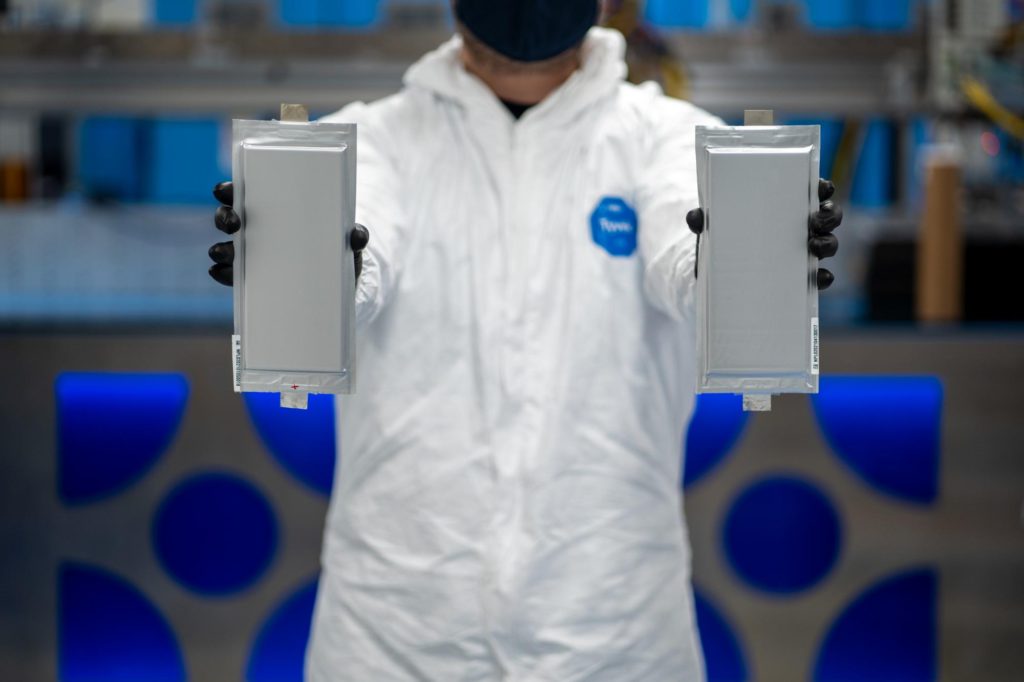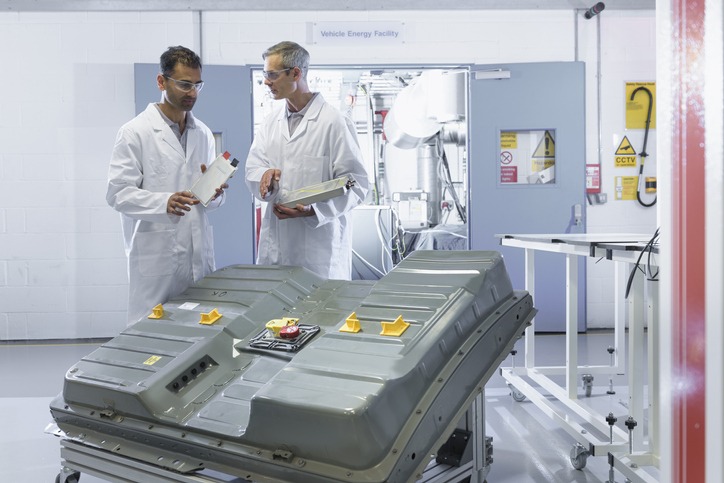Grand UK consortium to resolve electric-vehicle power supply issues with solid-state battery technology
19 August 2021

A consortium of seven UK-based organisations has signed a memorandum of understanding (MoU) to develop prototype solid-state battery (SSB) technology for vehicles.
This technology offers significant advantages over conventional lithium-ion batteries and could be crucial in helping the UK meet its net-zero ambitions. The successful outcome of the collaboration would harness and industrialise UK academic capability to produce cells using highly-scalable manufacturing techniques that leapfrog the cost-effectiveness and performance achieved elsewhere.
The collaboration of several companies and institutions in the development of a technology that will hugely benefit electromobility needs to be championed. Other institutes and carmakers are developing solid-state batteries, but the size and experience of this consortium is unrivalled.
The consortium comprises organisations that specialise in battery research, development, and manufacturing. It includes:
- Faraday Institution – the UK’s independent institute for electrochemical energy-storage research, which has led the consortium’s formation and will lead its development.
- Britishvolt – the UK-based gigafactory developer, with a site in the north east of England.
- E+R (Emerson & Renwick) – a global designer of manufacturing equipment.
- Johnson Matthey – a global leader in sustainable technologies and the UK’s leading battery-materials business.
- Oxford University –the academic institution that leads the Faraday Institution’s solid-state battery project (SOLBAT) and provides the necessary scientific understanding to the consortium.
- UK Battery Industrialisation Centre (BIC) – the battery manufacturing development facility to enable UK battery-manufacturing scale-up and facilitate upskilling in the battery sector.
- WMG, University of Warwick – leaders in battery R&D and initial scale-up capability, as well as academic and apprenticeship skills development.
The consortium has created a preliminary design for a prototyping facility, although it is still seeking a source of funding.
World leader ambitions
The development of solid-state batteries in the UK would enable it to reach ambitions of being a world leader in electrically-chargeable vehicle (EV) battery technology. The country’s government was recently criticised by the House of Lords for falling behind other markets in developing new electrification methods for vehicle propulsion, despite ongoing claims of wanting to lead a global revolution.
‘Collaboration between industry, government and our world-leading academic institutions is putting the UK at the forefront of global efforts to develop innovative automotive technologies, such as solid-state batteries,’ commented minister for investment Lord Grimstone.
‘It is the work of our internationally-renowned research and development base, like those brought together by this consortium, that will give us the tools needed to forge a strong and sustainable future for the automotive sector and increase our contribution to combatting climate change.’
Benefits for all
SSBs offer significant advantages over existing lithium-ion battery technologies, including the ability to hold more charge for a given volume, leading to increased EV range. Another advantage is the reduced costs of safety management. Early deployment of SSBs is likely to be in consumer electronics, niche automotive applications and unmanned aerospace before being used in broader EV markets.
The Faraday Institution forecasts that, in 2030, SSBs are likely to take a 7% share of the global consumer-electronics battery market and a 4% share of the EV battery market. Global SSB revenues from sales to EV manufacturers are expected to reach $8 billion (€6.8 billion) by 2030 and then grow rapidly to 2040 and 2050, when the market is expected to become the leading technology.
The construction of a facility in the UK will enable SSB technology to emerge from university laboratories into prototype production. It will allow larger cells to be produced using scalable manufacturing techniques that will be improved through a deep investigation of the causes of problems that emerge during manufacture and testing.
‘The realisation of a prototype solid-state battery cell will be a great achievement for the UK battery industry, and this consortium will be a critical enabler for delivering this milestone,’ said Christian Gunther, CEO, battery materials, at Johnson Matthey. ‘Delivering enhanced range and safety over traditional lithium-ion battery technologies will be a key driver for battery-electric vehicle adoption, supporting the transition to a net-zero future.’
Project funding
As the consortium starts work, the UK government has announced that it is awarding £91.7 million (€107 million) to four companies and projects that will help develop EV technologies.
The funding has been made through the Advanced Propulsion Centre (APC) Collaborative Research and Development competition, which supports innovative low-carbon automotive technology. Together, the projects could save almost 32 million tonnes of carbon emissions, equivalent to the lifetime emissions of 1.3 million cars, and secure over 2,700 jobs across the country.
The projects awarded funding are:
- BMW-UK-BEV, Oxford – £26.2 million to develop an electric battery that will rival the driving range of internal combustion engines, helping put concerns over how far electric vehicles can travel to rest;
- Project Celeritas, Birmingham – £9.7 million to create ultra-fast charging batteries for electric and fuel-cell hybrid vehicles that can charge in as little as 12 minutes;
- The Brunel project, Darlington – £14.6 million to develop a novel zero-emission, hydrogen-fuelled engine to help decarbonise heavy-goods vehicles; and
- Reecorner, Nuneaton – £41.2 million to radically redesign light and medium-sized, commercial-electric vehicles in Nuneaton by moving the steering, breaking, suspension and powertrain into the wheel arch, enabling increased autonomous capability, storage space and design flexibility.
‘By investing tens of millions in the technology needed to decarbonise our roads, not only are we working hard to end our contribution to climate change, but also ensuring our automotive sector has a competitive future that will secure thousands of highly-skilled jobs,’ added Lord Grimstone.
‘Seizing the opportunities that arise from the global green automotive revolution is central to our plans to build back greener, and these winning projects will help make the widespread application and adoption of cutting-edge, clean automotive technology a reality.’



